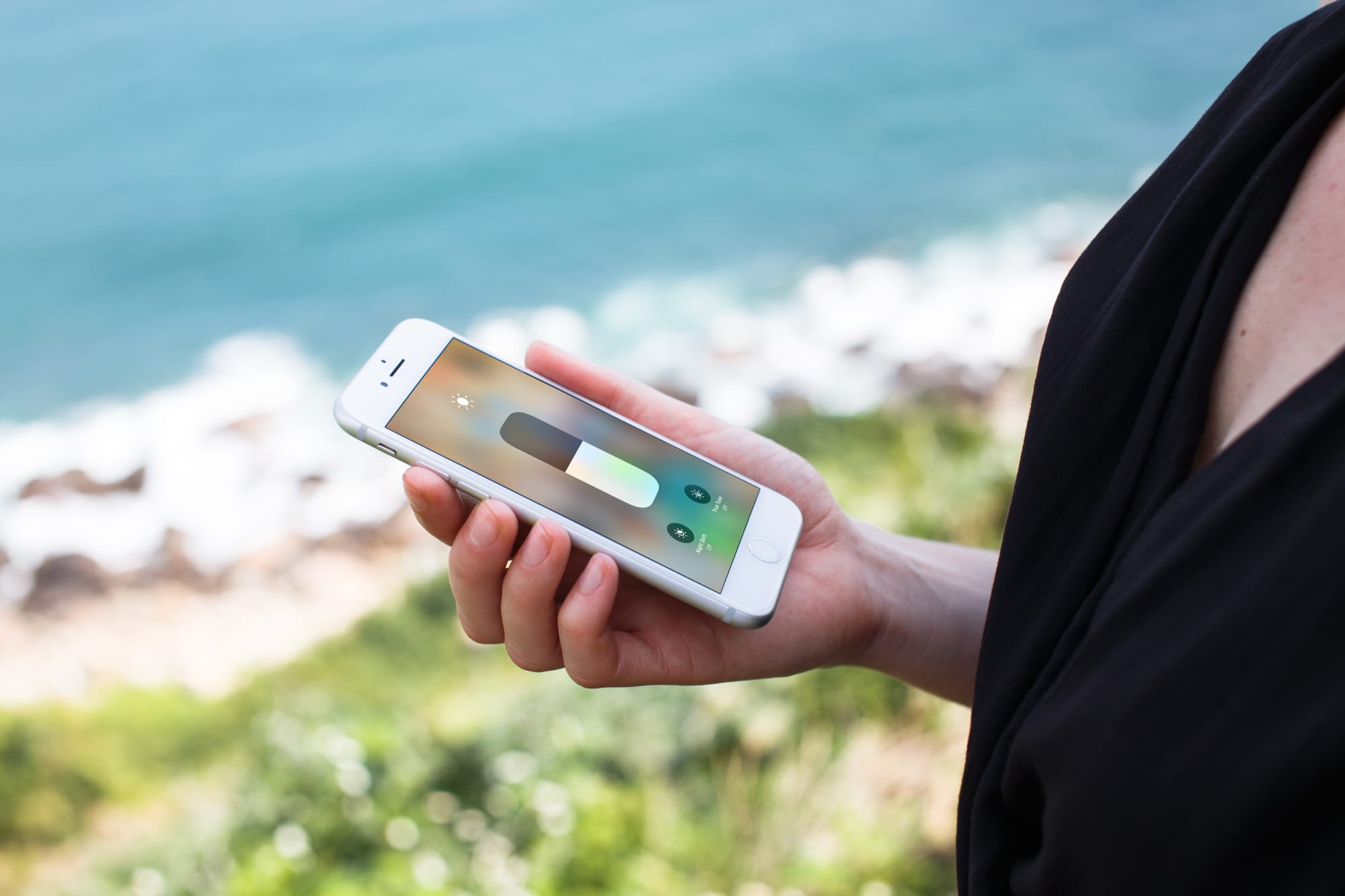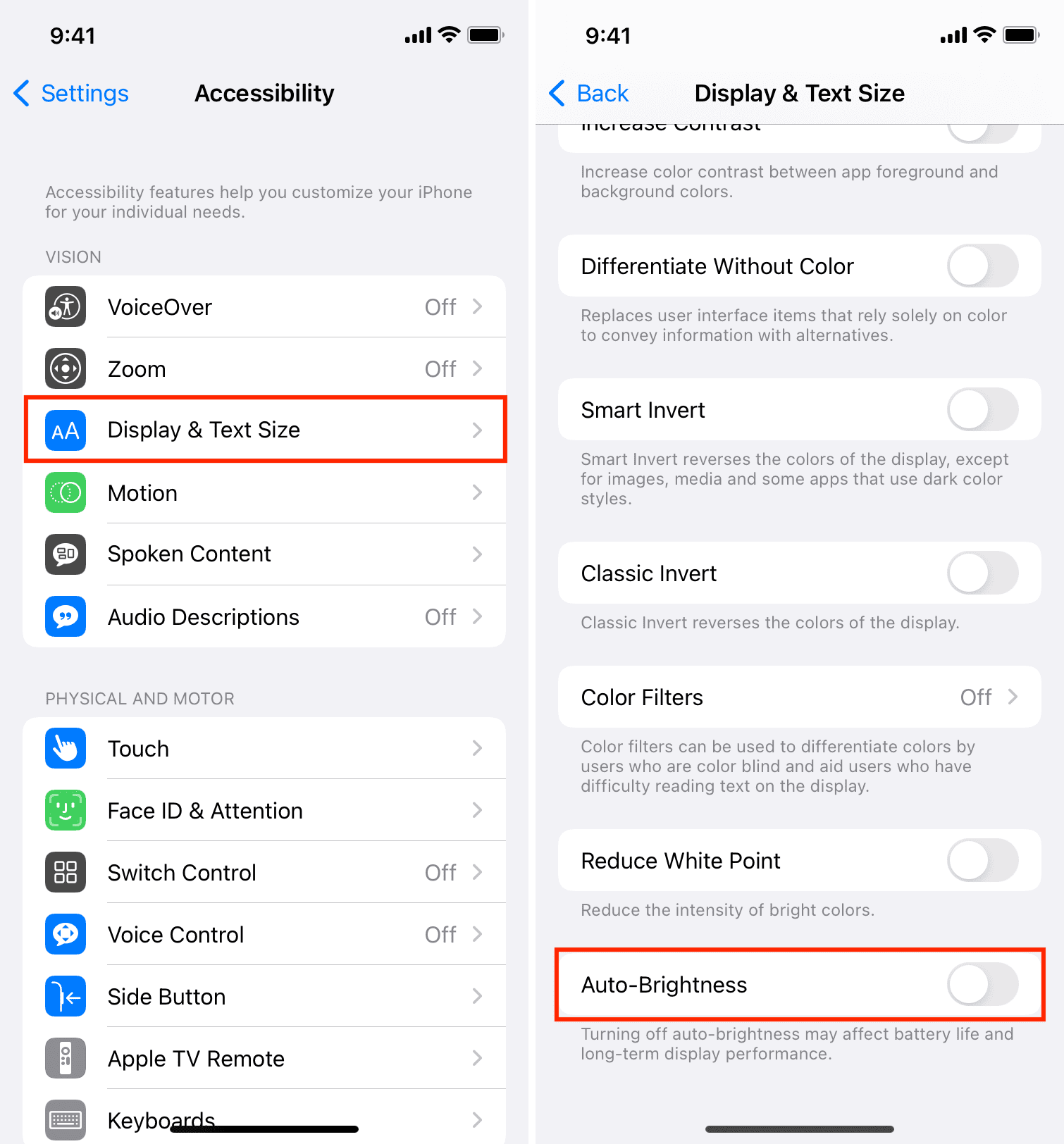Learn how to prevent your iPhone from automatically changing display brightness so you can adjust it manually to maintain a consistent screen illumination.

The iPhone uses an ambient light sensor to adjust screen brightness dynamically. Step outside under direct sunlight and iOS will crank up brightness levels to make onscreen text easier to read. When in a dimly-lit room, brightness falls to minimum to reduce eye strain.
If you don’t want iOS to manage screen brightness on your behalf, disable the Auto-Brightness feature. Doing so will cause whatever brightness you’ve set manually to stick regardless of the changing lighting conditions in your surroundings.
Before we show you the steps, keep in mind that Auto-Brightness was designed to preserve battery life; using manual brightness will negatively impact your battery life.
Turn off the Auto-Brightness feature on iPhone or iPad
Apple doesn’t want you to change brightness manually, so it’s moved the Auto-Brightness toggle from the usual display and brightness settings to Settings > Accessibility > Display & Text Size, so turn it off from there. You’re recommended to use automatic brightness whenever possible to save your battery life. But if you’d like to manually control it, you now know how. Just don’t forget to re-enable automatic brightness when you no longer need manual control.

If your iPhone is very hot
Your iPhone may come too hot if exposed to direct sunlight, when recording videos for a long time, or playing a demanding game. What that happens, iOS decreases screen brightness as a safety measure. Increasing it manually with the brightness slider in the Control Center won’t restore full brightness until your iPhone cools down.
More on screen brightness: